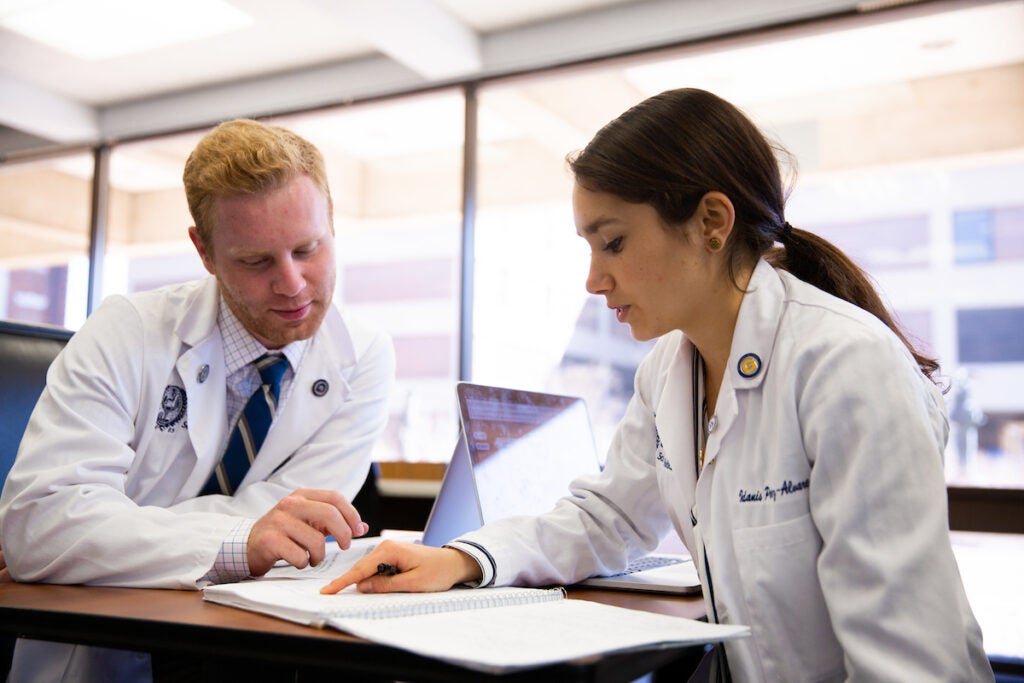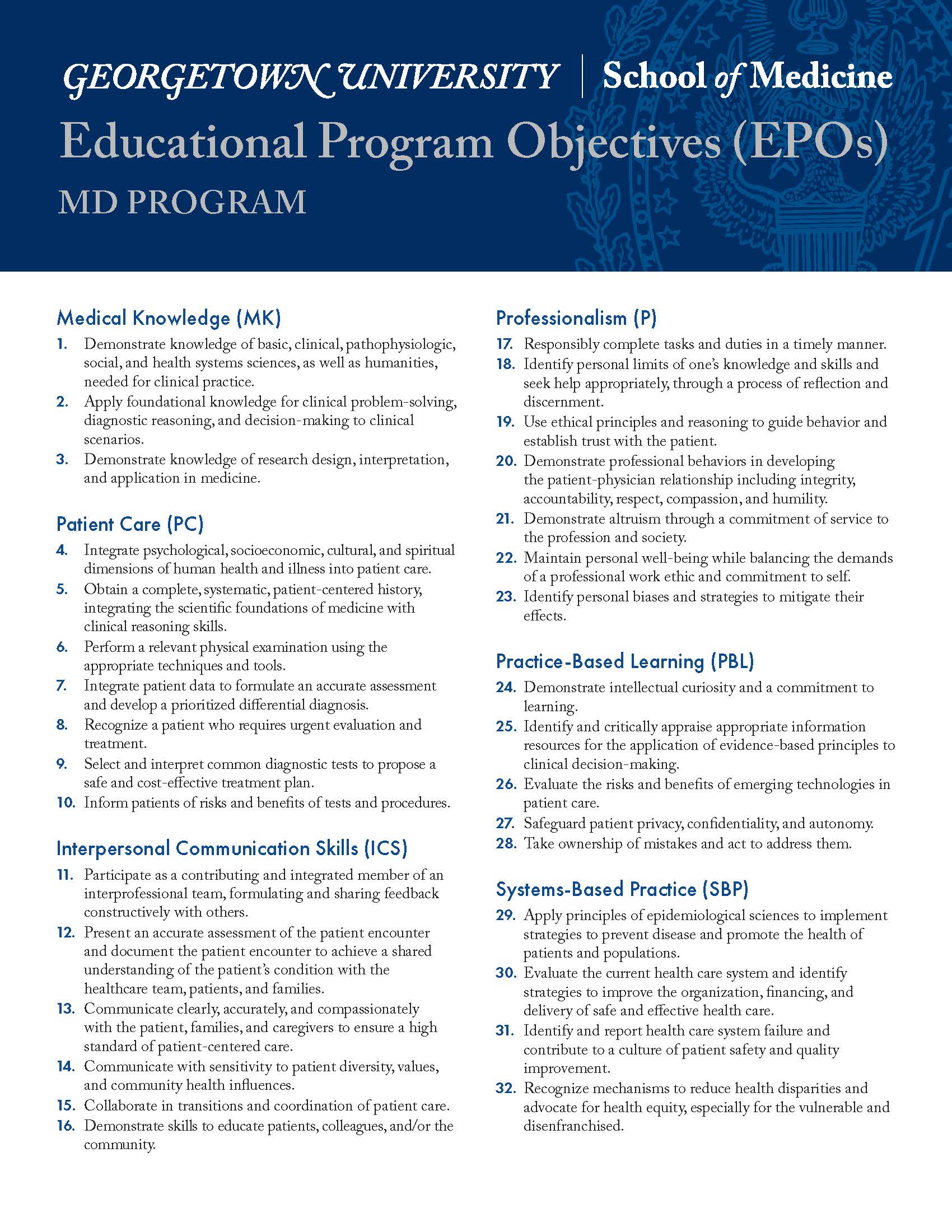Curriculum

Mission Statement
Guided by the Jesuit tradition of Cura Personalis, care of the whole person, Georgetown University School of Medicine will educate a diverse student body, in an integrated way, to become knowledgeable, ethical, skillful, and compassionate physicians and biomedical scientists who are dedicated to the care of others and health needs of our society.
Medical Education Competencies
In Spring 2025, Georgetown University School of Medicine faculty met and updated GUSOM’s previous nineteen competencies. Now named Education Program Objectives (EPOs), these will be delivered within six domains: Medical Knowledge, Patient Care, Interpersonal Communication Skills, Professionalism, Practice-Based Learning, and Systems-Based Practice. All modules, courses, and clerkships contribute to the attainment of these important objectives.
Graduates of Georgetown University School of Medicine will demonstrate the following competencies.

Medical Knowledge (MK)
- Demonstrate knowledge of basic, clinical, pathophysiologic, social, and health systems sciences, as well as humanities, needed for clinical practice.
- Apply foundational knowledge for clinical problem-solving, diagnostic reasoning, and decision- making to clinical scenarios.
- Demonstrate knowledge of research design, interpretation and application in medicine.
Patient Care (PC)
- Integrate psychological, socioeconomic, cultural, and spiritual dimensions of human health and illness into patient care.
- Obtain a complete, systematic, patient centered, history integrating the scientific foundations of medicine with clinical reasoning skills.
- Perform a relevant physical examination using the appropriate techniques and tools.
- Integrate patient data to formulate an accurate assessment and develop a prioritized differential diagnosis.
- Recognize a patient who requires urgent evaluation and treatment.
- Select and interpret common diagnostic tests to propose a safe and cost-effective treatment plan.
- Inform patients of risks and benefits of tests and procedures.
Interpersonal Communication Skills (ICS)
- Participate as a contributing and integrated member of an interprofessional team, formulating and sharing feedback constructively with others.
- Present an accurate assessment of the patient encounter and document the patient encounter to achieve a shared understanding of the patient’s condition with the healthcare team, patients and families.
- Communicate clearly, accurately and compassionately with the patient, families and caregivers to ensure a high standard of patient-centered care.
- Communicate with sensitivity to patient diversity, values and community health influences.
- Collaborate in transitions and coordination of patient care.
- Demonstrate skills to educate patients, colleagues, and/or the community.
Professionalism (P)
- Responsibly complete tasks and duties in a timely manner.
- Identify personal limits of one’s knowledge and skills and seek help appropriately through a process of reflection and discernment.
- Use ethical principles and reasoning to guide behavior and establish trust with the patient.
- Demonstrate professional behaviors in developing the patient-physician relationship including integrity, accountability, respect, compassion and humility.
- Demonstrate altruism through a commitment of service to the profession and society.
- Maintain personal well-being while balancing the demands of a professional work ethic and commitment to self.
- Identify personal biases and strategies to mitigate their effects.
Practice-Based Learning (PBL)
- Demonstrate intellectual curiosity and a commitment to learning.
- Identify and critically appraise appropriate information resources for the application of evidence-based principles to clinical decision-making.
- Evaluate the risks and benefits of emerging technologies in patient care.
- Safeguard patient privacy, confidentiality, and autonomy.
- Take ownership of mistakes and act to address them.
Systems-Based Practice (SBP)
- Apply principles of epidemiological sciences to implement strategies to prevent disease and promote the health of patients and populations.
- Evaluate the current health care system and identify strategies to improve the organization, financing and delivery of safe and effective health care.
- Identify and report health care system failure and contribute to a culture of patient safety and quality improvement.
- Recognize mechanisms to reduce health disparities and advocate for health equity, especially the vulnerable and disenfranchised.